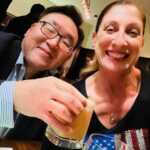After reading through a batch of these essays, the most striking observation is the diversity of the applicants’ experiences. It was fascinating to read about journeys that began at the foothills of the Himalayas or somewhere in the Libyan desert. One of my favorite depictions concerned an applicant who decided that he wanted to become a doctor, “when my best friend was diagnosed with juvenile arthritis and we were no longer able to climb the mango and guava trees together in India.” Some of their medical school experiences were quite remarkable.
“A major outbreak of Chikungunya fever ravaged my state during my final year of medical school and I witnessed firsthand the debilitating effect of this disease.” It is inspiring to read about an African applicant who had to learn a fifth language to attend medical school. She subtly suggests that she is still struggling with the whole idea of taking multiple-choice tests. There is the applicant who spends a rotation at a Peruvian public hospital, where he encounters, “a patient with obvious rheumatoid arthritis who is seeing a doctor for the first time in twenty years.” These vignettes share common themes of hope, optimism, and determination, the precursors for a happy life.
We are not the only physicians who help their patients; however, I believe that it is the quality of our patient interactions that sets rheumatology apart.
The Happiness Pie
The social scientists, Sonja Lyubomirsky, PhD, professor of psychology at the University of California at Riverside, Kennon Sheldon, PhD, professor of psychology at the University of Missouri at Columbia, and David Schkade, PhD, professor of management and strategy at the University of California at San Diego, have studied the science of lasting happiness. Their analysis of the existing research led to their creation of a simple pie chart showing what determines happiness. About half of the pie is attributed to the genetic set-point of the individual. The smallest slice, about 10%, is related to one’s particular circumstances. So what is the remaining 40%?
According to Dr. Lyubomirsky, what is left must be “intentional activity,” mental and behavioral strategies to counteract human nature’s downward pull towards unhappiness. These authors stress that people need to get over the idea that happiness is a fixed mood. Instead, we need to realize that sustained effort can boost it. As rheumatologists, it is our patients who provide us with countless opportunities to hone our happiness skills. For example, what could be more satisfying for both patient and clinician than to be diagnosed with a treatable rheumatologic disorder, especially one that had previously been misdiagnosed by others? We help to ease the burden of disease for many of our patients and this energizes us. We feel great when we help others feel better. Reducing pain and malaise and restoring patients’ lives, these become meaningful events in our lives, too. This symbiotic relationship is what drives our happiness meters to the top of the scale. Our patients bring us naches!



